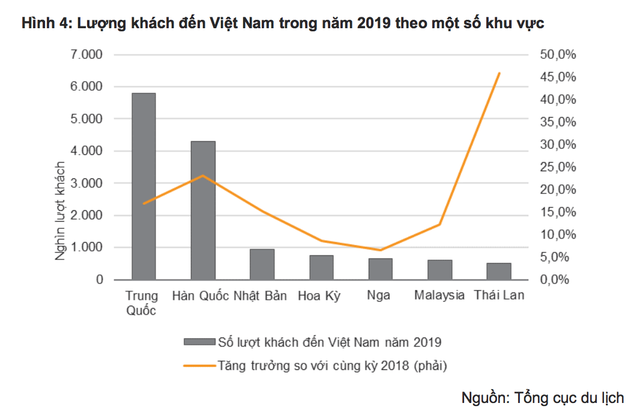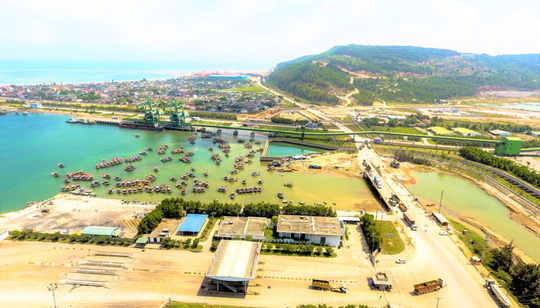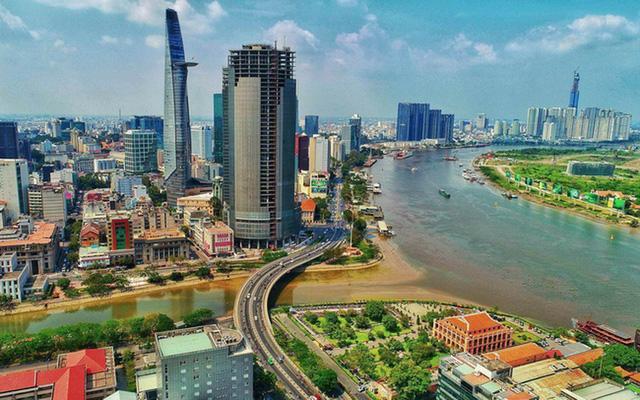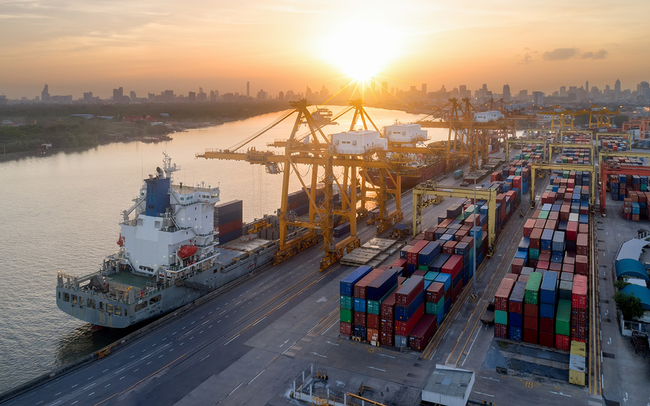Which industries "benefit" when the economy is "hit" from the Corona virus?
China is considered the world's factory, accounting for 1/6 of the total global production scale, while Hubei is the capital of the automobile, textile, steel, petrochemical, etc. of China. Therefore, the effects that the coronavirus pneumonia epidemic has on the global economy in general (including Vietnam) are huge.

As of February 3, 2020, there were 16,762 cases of coronavirus infection worldwide with the epidemic area concentrated in Hubei Province, China. The city of Wuhan (in Hubei province) is considered the origin of this epidemic.
The WHO recently declared nCoV a global emergency (PHEIC). PHEIC is defined by the WHO as "an unusual event", "constitutes a public health risk to other countries through the international spread of the disease", and is likely to require a "coordinated international response".
Measures to prevent the spread have been implemented by governments including lockdowns in major cities of Hubei province, stopping tourism activities to and from China, restricting border crossings and even closing borders.

Due to the impact of the coronavirus pneumonia epidemic, the growth rate of Asian economies may slow down in the first quarter of 2020
In a recently released thematic report, the Analysis Division, VNDirect Securities Joint Stock Company assessed that the impact came from the psychology of concern about a decline in economic growth, as well as the difficulty of quantifying the impacts of this epidemic when the scale of the spread of this epidemic as well as the prevention/control actions of stakeholders are unprecedented.
Asia is unlikely to inevitably slow down growth in thefirst quarter of 2020
Governments have taken drastic moves to prevent the spread of the epidemic and avoid repeating the lessons of SARS in 2003, however, VNDirect believes that these moves have also led to many impacts on the economy of the whole region.
Asian countries, which have close economic ties with China, will be greatly affected by a sharp decline in demand for tourism and flights to and from China.
In 2019, the total number of Chinese tourists going abroad was 170 million people (compared to 20 million people at the time of the SARS epidemic, in 2003) with a total spending of up to 260 billion USD (according to ANZ). Southeast Asian countries, Japan, and South Korea are the countries that have been greatly affected by the decline in tourists from China, especially Thailand with the contribution of the tourism industry to GDP at 11.2%.
In addition, China is considered the world's factory, accounting for 1/6 of the total global production scale, where the factories of global corporations, especially American corporations, are located. Japan, Korea, Europe.
Hubei Province is the capital of China's automobile, textile, steel, petrochemical, etc. industries. Hubei province has advised manufacturing companies not to resume operations until Feb. 14 and is likely to operate in a limited way for a later period of time.
On January 30, China announced a January PMI of 50, a number equivalent to market expectations, thereby alleviating worries about the decline in the country's production activities. However, VNDirect experts are still cautiously waiting for more data in February, when the country's strong measures begin to have an impact, especially after the long Tet holiday.
Potential impact on Vietnam's economy
According to VNDirect, the industries most affected by the corona flu epidemic include tourism, accommodation, and aviation in the context of the tourism and travel needs of Chinese people and the whole Asian region are affected when people have a limited movement mentality during the epidemic.
Currently, the Civil Aviation Authority has stopped licensing for regular flights to/from Vietnam connecting to epidemic provinces and cities of China. Tours from China are also suspended and accordingly, Vietnam's tourism and aviation industry will be strongly affected, especially in this peak season in the first quarter.

In the context of controlling the epidemic, measures related to tightening border crossings are likely to be promoted in the near future. Therefore, export activities of Vietnam and China may face difficulties.
"With the above risks, industries exported along land borders and sub-quotas to China such as agricultural products, fisheries, food, etc. will be significantly affected in the short term," VNDirect's report stated.
In addition to the factor of difficult trade, some manufacturing industries in Hubei may be stalled, leading to supply disruptions. Therefore, businesses importing goods from China or businesses with raw materials dependent on this country may be greatly affected.
Industries that may be affected by the production disruption include: textiles and garments (yarn and fabric imports), electronics, consumer goods (components and accessories imported from China), flat steel (HRC imports). However, it is also important to note that this potential supply disruption may only be temporary and manufacturing activities in China may soon be restored when the epidemic is under control.
In addition, historically from past epidemics, the retail industry of durable and luxury consumer goods will also be negatively affected in the context of weak shopping demand. Retailers/distributors of durable consumer goods, jewelry as well as retail real estate may face difficulties if the epidemic is not controlled.
Overall, China's shrinking economic activity could lead to the risk of slowing import and export demand across Asia and the world. Therefore, the group of trade sectors at risk of being indirectly affected such as the group of seaports, airports and logistics and transportation.
This is also reflected in the 7-8% decline in oil prices in January in the face of concerns about the global economy being affected. Oil prices under downward pressure may have a negative impact on the domestic oil and gas industry.
A number of industries that can benefit in the short term
However, VNDirect experts also said that in the context of general disadvantages, there are still some industries that will benefit. Industries that can benefit in the short term thanks to the disruption of the supply of goods from Hubei imported into Vietnam are those located in the downstream segment and under great competitive pressure from products from China such as textiles, garments, etc steel, tire tubes.
In addition, industries where Vietnam and China are competitors in the export sector may also record an increase in orders in the short term due to the temporary shift from China to Vietnam such as textiles and footwear.
The pharmaceutical industry, medical supplies and pharmaceutical retail can benefit, but the scale of this industry group is still small.
More specifically, businesses allowed to import drugs (especially special drugs) and companies distributing and manufacturing medical supplies are the main beneficiaries.
The rest of the majority of domestic pharmaceutical enterprises mainly producing antibiotics, simple medicines and functional foods did not benefit from the outbreak of the epidemic.
In addition, pharmaceutical stocks also have the characteristic of low liquidity, so it will affect investment efficiency if the investment vision is not too long.
In contrast to traditional retail, e-commerce activities can be prioritized. As people reduce the need to shop at physical stores, the demand for online shopping, delivery, and delivery activities may increase.
Bich Diep - Dan Tri
Related News

Foxconn pours $1.5 billion into Thanh Hoa to produce for Apple
14/2/2021

We have generated more than $1,200 billion in GDP
11/11/2020

Vietnam's economic growth forecast for the 4th quarter of 2020 and 2021: Will recover in a V-shape, in 2021 it will increase by about 6.5 - 7%
21/10/2020

Standard Chartered: Vietnam's GDP growth forecast of 3% in 2020 and 7.8% in 2021
20/10/2020

Samsung's outstanding moves in Vietnam and other countries in the "year of Covid-19"
20/10/2020
Featured Articles

Miza Group donated 3 billion VND in response to the contest movement "The whole country joins hands to remove temporary houses and dilapidated houses" in Thanh Hoa
7/6/2025

MIZA GROUP ENTERS THE TOP 10 GREEN VIETNAM ESG 2025 THANKS TO THE CIRCULAR ECONOMY DEVELOPMENT STRATEGY
27/6/2025

Miza (MZG) shares are officially listed on UPCoM
12/11/2024
